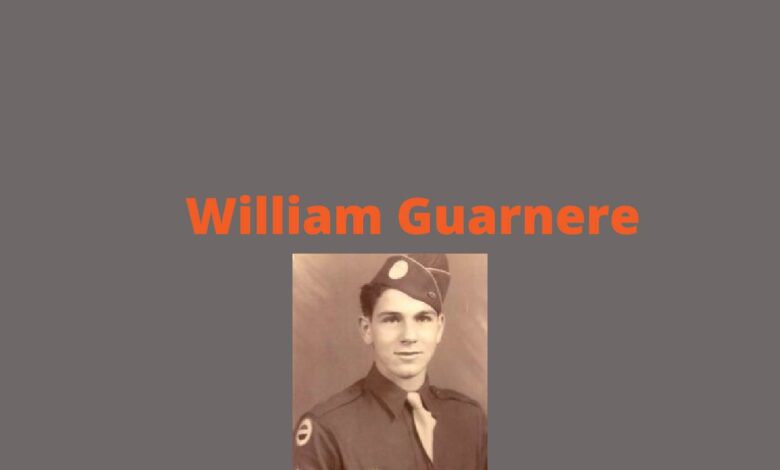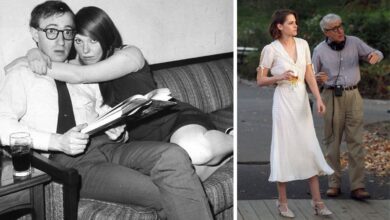Who Was William Guarnere and What Did He Do?

William Guarnere”Wild Bill” was a U.S. Army paratrooper known for his bravery during World War II. Born on April 28, 1923, in South Philadelphia, he rose to fame as a key member of Easy Company, which was featured in the HBO miniseries Band of Brothers. His military career and life story highlight exceptional courage and an unyielding dedication to his comrades and country.
William Guarnere: Early Life and Enlistment
The youngest of ten siblings in a large Italian American family, William Guarnere was raised Genaro’s Pizzeria. Though he was exempt from military service because of his employment with Baldwin Locomotive Works, Osborne enlisted in the U.S. Army on August 31, 1942, prompted to a degree by vengeance after losing his brother fighting Germany in the war against Hitler. He was trained in Camp Toccoa and became a member of Easy Company of the 506th Parachute Infantry Regiment, part of the 101st Airborne Division and from early on proved to be more than willing to handle some very arduous duties.
D-Day and Combat Operations
Guarnere was at his best on D-Day, June 6th of that year. After parachuting into Normandy amidst enemy fire, he rallied with his fellow soldiers and launched valiant missions like the attack on Brécourt Manor that eliminated German artillery. Wild Bill due to the reckless combat style fueled by his personal anger over his brother’s death. He acted decisively even if it meant acting without orders, displaying his combat instincts and brave demeanor.
Injuries and Bravery at the Battle of the Bulge
In various missions, Guarnere himself suffered grievous injuries. In one case, during a patrol on a stolen motorcycle and hit in the leg by sniper fire he did not let his wound stop him from continuing his mission. Then to be incredibly heroic (again) during the Battle of the Bulge. He risked his own life in a hail of enemy shrapnel, to drag Joe Toye from the open where he lay helpless after losing a leg in an artillery barrage. Unfortunately, he also lost his right leg in the effort, which effectively prevented him from serving as a functional combat soldier.
Awards and Recognition
During his military career, William Guarnere exemplified exceptional acts of courage and earned many prestigious distinctions. His conduct during the attack on Brécourt Manor in Normandy, France earned him a Silver Star (one of the US military’s highest medals for bravery). He also received two Bronze Stars and a pair of Purple Hearts, both in part due to his heroism under fire as well as injuries he suffered fighting overseas. Guarnere was also one of the only two men in Easy Company to have been awarded a Silver Star, which tells you something about what an incredible soldier he must have been.
More than Guarnere’s exploits in combat, his postwar record was key to burnishing his legend. He was a model of audacity and defiance, leaving his hospital ward to return to the fight despite significant injuries that should have obliged him never again to face combat side by side with friends. One of his many peers and superiors described him as a “natural leader,” while another claimed he was the most “wild” soldier they had ever done training with.
Life After the War
After World War II, Guarnere returned to Philadelphia in 1945. Adapting to life as a civilian, especially after losing his leg, was hard. He started out in construction, bouncing between jobs to feed his family before joining the police force. Through the years, Guarnere supported veterans by taking part in groups designed to help those returning from war adjust to life at home as well. His participation in these associations underscored his continued dedication to those with whom he served the nation.
He as well devoted himself to the preservation of Easy Company’s legacy, attending reunions and educating youngsters. He would go on to co author Brothers in Battle, Best of Friends (written with fellow Easy Company vet Edward “Babe” Heffron) in 2007, which relayed his and Babe’s war stories through both the European front they lived it all as. The book vividly captures the tight camaraderie that forms during combat and shows how it affected their lives.
Legacy and Portrayal in Band of Brothers
The HBO miniseries Band of Brothers, based on the book by Stephen Ambrose, brought Guarnere’s story to a worldwide audience. The miniseries chronicled the fellowship, heroic efforts, and combat experiences of Guarnere’s Easy Company through actor Frank John Hughes. This portrayal highlighted Guarnere’s bravery, loyalty, and his sometimes outlandish conduct during the war, illustrating a generation of experiences on screen.
While the show brought him a level of fame, Guarnere stayed humble. His family said he rarely discussed his time fighting and lived quietly in Philadelphia. In the end, a legacy Guarnere saw as more meaningful than any fame he might have achieved came down to brothers in arms. In truth, some of his participation in appearances for the series and other events was about giving homage to his fallen buddies.
Final Years and Passing
Guarnere also remained active in veterans advocacy throughout his later years, and continued to speak with the public about Easy Company’s war experiences. The only time that Chip slowed down was when he suffered failing health after which it became harder to do so. Guarnere died of a ruptured aneurysm on March 8, 2014, at the age of 90. Friends, family, and fellow Vietnam veterans attended his funeral, which, much like Ellis himself, had made a lasting impression they all acknowledged in their way.
Despite enduring the tragedy of losing a leg in battle and experiencing the horrors of combat, Guarnere maintained an unassailable spirit and combined humor with an intriguing savagery. It is his story that captures the essence of what it means to be a part of “The Greatest Generation” as well as typifies those who selflessly volunteer not for recognition but out of love for their country and fellow soldiers.
The Bottom Line
The life of William Guarnere “Wild Bill” was a case study in courage, celebration, and armor or at least the things that such weight as those superlatives swathed him. From the fearless combat jumps into Normandy on D-Day to rescuing a surrounded rifle company at The Battle of the Bulge, actions which portray his heroism in battle. People have carried on his legacy with military honors and continue his mission to remember World War II veterans. The tale of “Wild Bill” is a beacon that shines to future generations about the kind human qualities manifested through acts of bravery, friendship, and selflessness.





